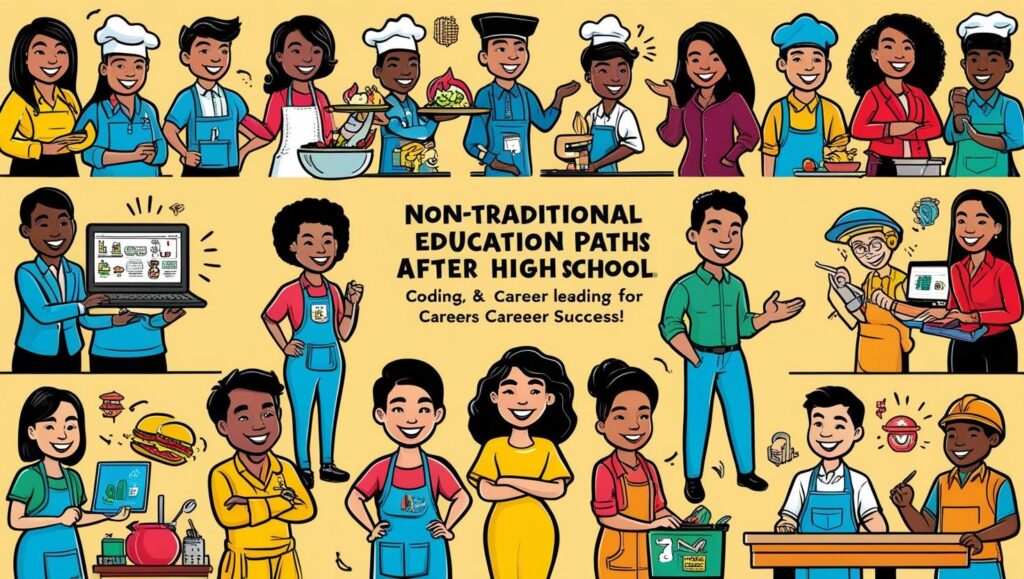Some of the world’s best undergraduate programs are located in the United States, drawing students from around the world. The US undergraduate education system is a powerhouse of eclecticism, creativity, and self-development, and curates a combination that goes above and beyond what any other educational pathway could prepare you for. But just getting into a top school does not equal academic success. Staying committed through their journey, learning strategies, decision-making skills, and having excellence in everything is the only way when it comes to benefit from what these programs have to offer to students.
Decoding the Structure of Bachelor’s in the USA
One of the main factors of being successful as a student is to understand the system and the expectations of US undergraduate education. These 4-year programs are intended to provide depth and breadth of knowledge. The first couple of years typically cover general educational requirements, which allow students to sample a broad range of fields of study. Fundamental principles of this approach allow students to explore their interests and make critical thinking a habit because it contributes to long-term student outcomes. The last two years are dedicated to studying a major, which facilitates both specialization and the possibility of pursuing research, internships, and capstone projects.
Establishing a Solid Scholastic Base
Doing well in your first years of undergrad is important for setting the stage academically. Attending lectures regularly, submitting assignments before the deadline, and participating in class discussions. Participation counts, and professors may be as invested in your engagement as in how well you do on their exams. Outstanding academic prospects usually stem from good student practice, such as reading in advance, taking clear notes, and reviewing notes regularly. Moreover, suppose all the students are struggling with the same topic. In that case, study groups can help motivate them to tackle those subjects, as well as allow them to explain concepts and learn from each other, honing their collaboration skills that are so vital in the modern world.
Importance of Time Management in Academic Excellence

One of the most vital soft skills that a student can learn to excel in is time management. Even the most intelligent students fall behind when the work is not scheduled and prioritized properly. As a successful undergraduate, I have a weekly planner which helps me manage classes, assignments, revision, extracurriculars, and life. Breaking tasks into chunks and setting smaller targets increases your efficiency and lowers your stress levels. In addition to this, effective time management can help with sleep and mental health, which have been shown to correlate with improved academic outcomes and overall college experience.
Making the most of campus resources
Like many other resources, academic resources offered through universities in the US are underused by students. Whether it be writing centers, tutoring services, academic advisors, or faculty office hours, these resources intend to encourage student success in all fields of study. These students tend to do better than those who believe that they could figure everything out on their own, and would, therefore, not seek help when required. For instance, libraries provide more than just books; they also provide databases and research tools and even workshops that can make a difference in academic output.
Building Good Study Habits
The foundation of success is a personalised study schedule. The truth is, every student is different, and even if you have identified your learning style, le be it visual, auditory, or kinesthetic. Once you get the feel of your learning style, you can customize all your study tips and guidelines accordingly. If your learning styles are matched with the way you study — flashcards, recorded lectures, or practical work — they will be far more effective. Learn in small sprints instead of big marathons to retain more knowledge while building momentum.
Promote Academic Integrity with Ethical Learning Practices
Following the guidelines of academic integrity is an essential element in academic success. It is indeed cheating, plagiarism, and all the other dirty tricks in the book, may give you short-term returns, but long-term, they destroy your reputation and the chances that you may get somewhere in life. Academic integrity and originality are prized in US institutional life. Understanding how to cite sources appropriately, paraphrase, and contribute original ideas to class discussions and papers will not only help you earn better grades, but it will also prepare you for the workplace, where integrity is a no-brainer.
Creating Better Relations with Your Professors and Classmates
Far too often, a strategy that gets brushed off when helping students achieve success is fostering real relationships with other students and professors. Building a good relationship with faculty can balance the research, mentorship, and letter of recommendation for graduate school or a job. In the meantime, discussing coursework with peers in and outside the classroom helps create a sustaining scholarly community. Although it will lead to future career paths and collaboration ventures, which are long-term successes beyond the classroom, networking within your field of study.
Motivation with Goal Setting and Self Review

Having a mix of immediate and distant academic goals can also keep you excited throughout your undergraduate career. Goals give your study sessions direction and purpose, whether it is a desire to hit a particular GPA, procure a coveted internship, or conquer a rock-hard class. In addition, periodic self-reflection allows you to measure your progress and refine corrections, and to celebrate small successes along the way. The secret to achieving this sustainable academic performance is found in what is referred to as the growth mindset, whereby challenges are just learning opportunities.
Life Outside of Studies
Although academics are the heart of college life, getting involved both on and off-campus adds benefits that lead to a more fulfilling college experience and can support, if indirectly, your academic success. Holding a leadership position in clubs, competing in sports or volunteering refine transferable skills like communication, organization and grit. Furthermore, non-academic activity reduces burnout and develops a healthy personality — an attractive feature for anyone who wants to apply for a graduate school or face a prospective employee.
Strategizing Towards the Future: Internships, Research, and Career Aspirations

The further you advance in your college career, the more you will want to make each course work give you a step toward your future career goals. Internships, research projects, and co-curricular programs build practical experience into your academic profile. Career services offices tend to run job fairs, resume workshops, and post-college networking events. Planning, guidance, and career planning are important for students to have meaningful achievements during their academic journey and after graduation.
Conclusion
Enormous diligence is required to do well in US undergraduate programs, and it takes a thoughtful plan of attack to succeed. Navigating the undergraduate world starts with mastering the academic structure; secondly you need the right habits and systems in place; thirdly maximise the use of resources available; and lastly find the right balance between academic work and all that extra-curriculars have to offer, enabling students to get rid of the intensive mentality and explore the experience of learning on multiple levels. Every student can make college a launching pad for lifelong success with the proper approach and a few tips.



